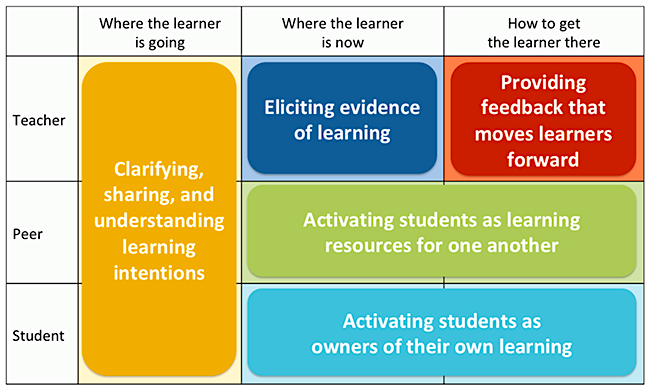 Formative assessment guru Dylan Wiliam and education data science expert Kathleen Scalise (University of Oregon) offer a powerful three-part series on remote teaching and gauging student progress – featured in three recent issues of the ASCD Express.
Formative assessment guru Dylan Wiliam and education data science expert Kathleen Scalise (University of Oregon) offer a powerful three-part series on remote teaching and gauging student progress – featured in three recent issues of the ASCD Express.
While the articles focus on digital teaching, so much of the advice also can be applied in face-to-face learning. For example: one key insight relates to student background knowledge as one of the most important factors in student success. Student learning improves when teachers take the time to assess what their students currently know to identify specific gaps and needs.
As we consider the challenges caused by the pandemic, how might teachers determine where students currently stand and what they currently know about the concept(s) being taught? These summaries and links to the attached series will provide answers to that question and provide insight into many more related issues. After the pandemic, as more teachers begin to include digital learning opportunities in their regular classroom instruction, these articles will continue to serve as a go-to resource!
Formative Assessment for Remote Teaching
Over several ASCD Express issues, the authors laid out “practical remote techniques for a formative assessment framework’s five instructional strategies.” Click on a title to read the complete article.
Formative Assessment for Remote Teaching: Understanding Learning Intentions
Kathleen Scalise and Dylan Wiliam – 12/10/20
Five digital-ready assessment strategies consider where students are going, where they are now, and what they need do to improve.
Quote: “Even in face-to-face teaching, when students all start out with similar amounts of knowledge around a new topic, they will vary dramatically in the sense they have made of what they have heard, seen, or done. It is only by assessing students that we can determine whether they have understood what they need to understand.”
Formative Assessment for Remote Teaching: Evidence and Feedback
Dylan Wiliam and Kathleen Scalise – 1/14/21
Educators have to think about the quality of evidence we have for instructional decisions in terms of depth and breadth.
Quote: “Whether in an online session or in face-to-face teaching, teachers frequently test the memory retrieval process with checks for understanding. However, when we think of checks as an assessment process, we have to think about the quality of evidence we have for instructional decisions in terms of depth and breadth.”
Formative Assessment for Remote Teaching: Students Take the Lead
Kathleen Scalise and Dylan Wiliam 2/11/21
The success of peer collaboration depends on how teachers organize online learning.
Quote: “Of the five strategies of formative assessment, the issue of peer collaboration is the one that depends most critically on how teachers organize online learning. Remote software that supports breakout rooms provides greater possibilities for collaboration than when the main interaction is between individual students and teacher.”


0 Comments on "A Super Resource for Formative Assessment and Student Background Knowledge"